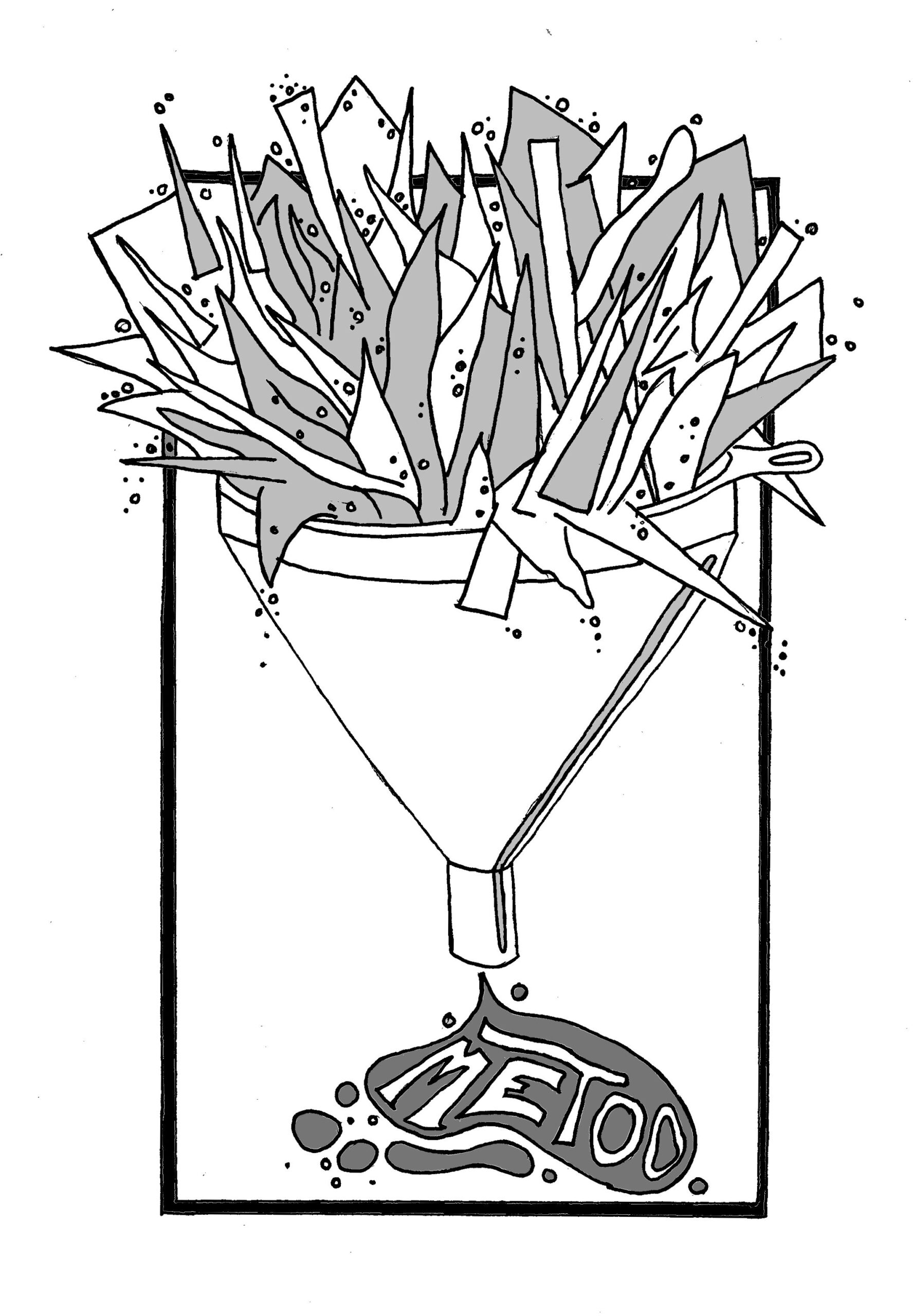The unintended impacts of the ‘Me Too’ movement
October 20, 2017
 This
piece represents the opinion of the author
.
This
piece represents the opinion of the author
.
Editor’s note: Shea Necheles is co-leader of Safe Space and is writing on behalf of the organization.
Every person who has experienced sexual violence has the right to share their story how they want, if they want and when they want. And every person who has experienced sexual violence who wants to speak out should be heard. The “Me Too” movement began to raise awareness about the sheer number of people who have been sexually assaulted or harassed and to demonstrate the pervasiveness of gender-based violence in our culture and communities. At Safe Space, Bowdoin’s confidential student advocacy group, we celebrate the opportunity for survivors to share their experiences and reclaim power and the chance for much needed visibility brought to an issue that affects so many. But we also want to address some of the “Me Too” movement’s potential, unintended impacts. We believe that the movement’s gendered language alienates and discounts many survivors’ experiences and generalizes an experience that is extremely individual. But most importantly, we believe that no survivor owes anyone their story.
The original post that began circulating Facebook called on women specifically to make the phrase “Me Too” their statuses. But this gendered request ignores the countless non-binary, trans, gender-neutral folks, men and others who have been sexually harassed and/or assaulted. Their stories are just as real, and their exclusion from the movement further reinforces barriers that they already face in getting support. If you feel excluded from the “Me Too” language, you are important, your experiences are valid and you deserve to be heard if you want to be.
Furthermore, the movement generalizes the experience of sexual assault with a simple “Me Too.” These five letters cannot even begin to encapsulate the wide array of experiences people face, but seeing a Facebook or Twitter feed full of identical “Me Too” statements makes the experience appear uniform. To some this may be comforting, but to others it may minimize their own experiences. Additionally, the simplicity of a “Me Too” status as a form of sharing your story with your friends and family can belittle the difficulty that some, rightly, experience with decisions to share their own story. You are an individual, your story is yours exclusively, the hardships of sharing it are valid and you do not have to be lost in a crowd of voices if you don’t want to.
The “Me Too” movement gives survivors the opportunity to share their story, build community and educate others in order to enact societal change. However, this opportunity can also feel onerous. It is never the job of the survivor to educate anyone. It is a collective responsibility of the community to educate each other. To request that survivors help educate the community through the sharing of their story is a personal burden. No survivor should ever feel obligated to raise awareness about sexual assault through the telling of their own stories. You owe no one your story and you are not letting anyone down if you don’t share it.
We recognize that, for some, this movement has been empowering and liberating. It has shed light on the prevalence of sexual violence. And for the bravery of so many who have shared their stories, we are grateful. But this movement has been difficult for others. Your experiences are always valid. Please reach out for support if needed. Lists of confidential Safe Space advocates are posted in every bathroom, and Kate Stern (207-798-4223), Leana Amaez (207-725-3048), Eduardo Pazos (207-798-4196) and the Counseling Center (207-725-3145) are all available confidential resources. There will be drop-in office hours held today at 24 College from 4-5 p.m. for anyone looking for informal support or a place to talk.
Shea Necheles is a member of the Class of 2018.


Comments
Before submitting a comment, please review our comment policy. Some key points from the policy: